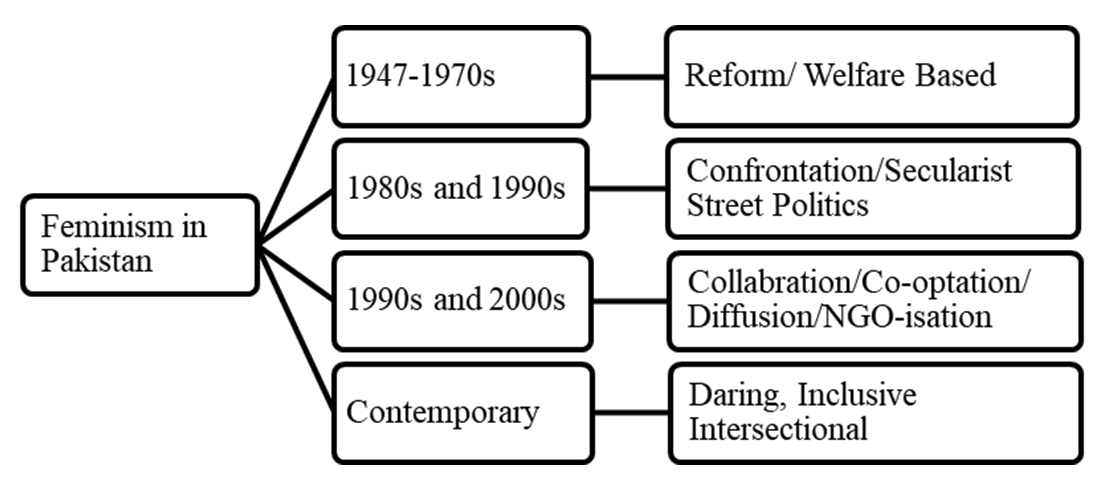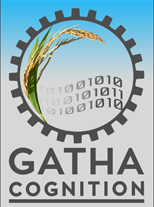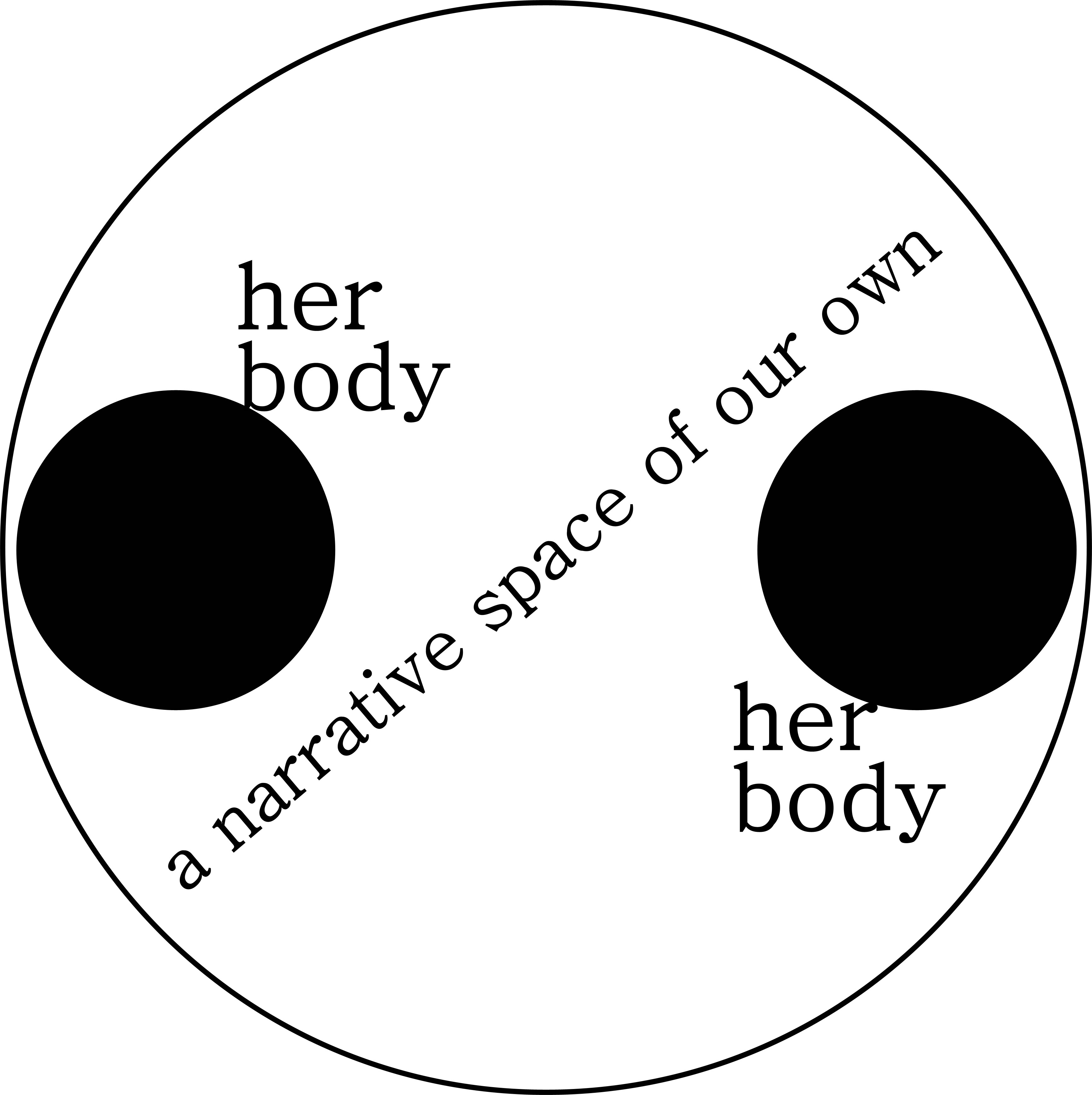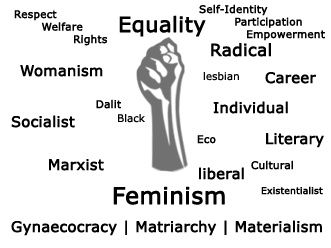Article Title :
Historicizing Feminism in Pakistan 
4 (2020)
42-57
Pakistan , History of Feminism , Feminist Movement , Feminism


This paper is historisization of feminism/feminist movement in Pakistan which has been influenced by national and global rearrangement of power, nationalism, dictatorship, democracy and the War on Terror (WoT). It presents the evolution and transformation of feminism in Pakistan since its inception; also gives an overview of the issues, challenges and achievements of the feminism and how it has evolved to its recent form passing through over seven decades of its journey. It also tries to address the question, where it goes from here, whether the feminist movement expands its scope, or shrivels into little niche pockets of identity-based resistance, is a question for the future. The article heavily relies on desk review of literature produced on feminism in Pakistan. Additionally, a qualitative research was carried out to explore subjectivities, realities, and opinions of women who have been part of feminist movement through in-depth interviews. The second part of in depth interviews included opponents of feminism both men and women belonging to religious right. A purposive and judgement sample was selected keeping in mind the research questions as well as consideration of research resources available. In-depth interviews method of inquiry of Feminist Research Methodology (FRM) was utilised to gain insights and opinions of preselected research participants.

Feminist movement transformed dramatically since the independence of Pakistan.
It has evolved with time from reform based feminism to secularist street politics fighting for women’s rights in the mid-1980s.
During the 1990s and post War on Terror, feminism continued to evolve.
By the 2nd decade of 21st century, unprecedented flow of information across the world, emergence of strong social media and global events like “#MeToo” movement helped shape the contemporary Pakistani feminism.
It is now challenging all forms of patriarchy both public and private.
Chesler, P. and Hughes, D., 2004. Feminism in 21st century. Academia, B07.
Bari, F. and Khattak, S. G., 2001. The Power Configrations in Public and Private Arenas: the Wmen’s Movement's Response. In A. M. Gilani, Power and Civil Society in Pakistan, 76. Karachi: Oxford University Press.
Jamal, A., 2013. Jamaat e Islami Women in Pakistan: Vanguard of a New Modernity. New York: Syracuse University Press.
Khan, A., 2019. History of women’'s movements in Pakistan and where they're headed in the future. Karachi, Sindh, Pakistan.
Khan, S. and Kirmani, N., 2018. Moving beyond the binary: gender-based activism in Pakistan. Feminist Dissent, 151-191.
Khan, S., 2006. Zina, transnational feminism and the moral regulation of Pakistani Women. Vancouver: UBC Press.
Mummtaz, K., 2005. Advocacy for an end to poverty, inequality and insecurity: Feminist social movements in Pakistan. JSTORE, 63-69.
Mumtaz, K. and Shaheed, F., 1987. Two Steps Forward, One Step Back? Lahore : Vanguard Books.
Mushtaq, F., 2010. A controversial role model for pakistani women. South Asia Multidisciplinary AcademicSouth Asia Multidisciplinary Academic, 18.
Richardson, D., 1997. Feminism and Sexuality. London: Palgrave.
Rouse, S., 1984. Women’s movements in contemporary Pakistan: results and prospects. Michigan State University.
Rouse, S., 2006a. Gender, Nation, State in Pakistan: Shifting Body Politics. Lahore: Vanguard Books.
Rouse, S., 2006b. Shifting Body Politics. Lahore: Vanguard Books.
Saigol, R., 2016. Feminism and the Women’s Movement in Pakistan. Singapore : Friedrich-Ebert-Stiftung.
Saigol, R.. 2019. Herald, Dawn.
Shaheed, F., 2005. Women’s movements: challenges and achievements. In W. U. Network, Women’s Empowerment in Muslim Contexts: Gender, Poverty & Democratisation – Research, 1-26. WUNRN.
Shami, A. A., 2013. Political empowerment of women in pakistan. Pakistan Vison, 1, 142-146.
Zia, A. S., 2009. The reinvention of feminism in Pakistan. JSTORE, 29-46.
Zia, A. S., 2018. Faith and Feminism: Religious Agency or Secular Autonomy. Portland: Sussex Academic Press.





